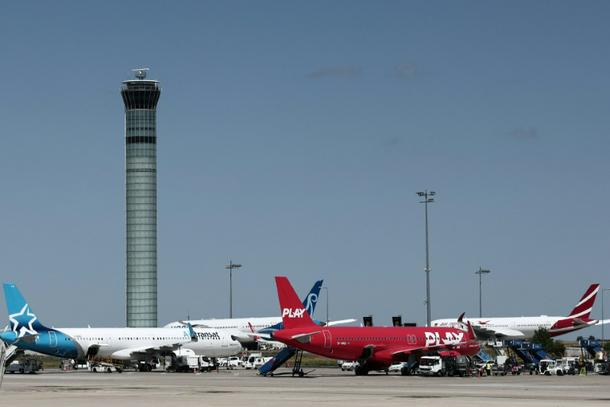
French air traffic controllers have demanded better pay and conditions
Paris (AFP) - French air traffic controllers have called off a three-day strike that threatened to disrupt European flights next week, a top union said on Saturday.
The main union in the sector, the SNCTA, announced the suspension of its strike notice for Tuesday to Thursday following consultations with the Civil Aviation Authority and “agreements” with the management.
The union, which represents around 60 percent of workers, has pushed for better pay and conditions.
The statement also referred to a promise by new Prime Minister Sebastien Lecornu not to ram his austerity budget through parliament without a vote, seen as a key concession to the opposition.
When contacted by AFP, the SNCTA said that it had “made progress on internal issues” and held “calm discussions with all parties involved,” without providing further details.
“No new strike notice date is planned,” the union said.
French air traffic controllers had initially planned to stage a strike in September and had later pushed it back to October.
The union has called for “a profound change in the management of operations”, complaining of “mistrust, punitive practices and humiliating management methods”. Pay must be adjusted for inflation, too, it has said.
The transport ministry said in a statement it welcomed the move to drop the strike, citing “the interests of passengers, airlines and airports”.
“Discussions must continue in order to improve the performance of French air traffic control, which currently remains below expectations,” the ministry said.
On Friday, Ryanair, Europe’s largest airline by passenger numbers, said it viewed air traffic controllers in France, Spain, Germany, the UK and Greece to be the worst-performing in Europe.
“Their governments refuse to ensure their ATC services are properly staffed and managed,” the airline said in a statement.
In early July, French air traffic controllers staged a strike that brought chaos to European skies. Then, flights booked by hundreds of thousands of people were cancelled at the start of the summer vacation period.
The industrial action in July was launched by smaller unions, while the SNCTA abstained.